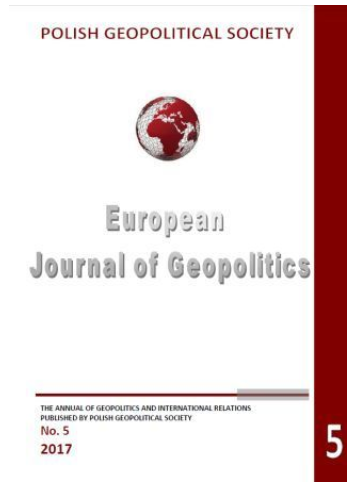CITIZENS’ INVOLVEMENT IN PUBLIC SPHERE – INFORMATION AS A IUS PUBLICUM FACTOR OF THE STATE OF DEMOCRACY
CITIZENS’ INVOLVEMENT IN PUBLIC SPHERE – INFORMATION AS A IUS PUBLICUM FACTOR OF THE STATE OF DEMOCRACY
Author(s): Adam Rogala-LewickiSubject(s): Politics / Political Sciences, Social Sciences, Psychology
Published by: Polskie Towarzystwo Geopolityczne
Keywords: Decision-makers;participation;democracy;influence;public sphere;information;citizens’ involvement
Summary/Abstract: A significant social and the spatial difference is expressed within the most current perspective of contacts occurring in the global public sphere, where public sphere is defined with the usage of Jürgen Habermas terms of real influence and involvement. Habermas in correspondence with Hannah Arendt, sees the emergence of mass society, often described as society of anonymous consumers, as the contemporary shape of public sphere, which cannot be described without a proper understanding of the network reality - since both have been integrated together through new technological conditions.The difference between the old, conventional defining of the public sphere and the new approach lies in the fact that the current public space (participatory, discursive), due to the modernization processes (computerization, Internet, etc.), has transforming into the global and mass, interoperable and implemented sphere in real time (real time exchange). These phenomenon reflects interconnected, multidimensional, multifactorial scheme of extremely complex relations based on multidependency in the modern society. Democratization, globalization, informatization, transnational integration, mediatization and tabloidisation, is a crucial novelty is the multi-dimension, multi-subjectivity and multi-banding in decisionmaking processes in the public sphere. The classically understood decision-making is replaced often by co-decision processes. The processes of democratic discourse could no longer be defined as the gap between the rulers and the ruled. If the distance was too big, one have to find an answer to the question whether the regime meets democratic criteria or not. The shift to the model in which the state actively shares information can be described as the evolution from the formula when disclosure of information was made only at direct request and only within narrow legal limits (access request) to the formula of broadly-defined information activity (publication), designed to bring citizens closer to the public sphere. They provide citizens with instruments for quickly and unlimited contact with the authorities.Therefore they influence on the quality of these contacts and, by engaging citizens to participate in the co-creation of the final scenario of civilization, on increasing the number of actors in the network game. Decision-makers, participation, democracy, influence, public sphere, information, citizens’ involvement
Journal: European Journal of Geopolitics
- Issue Year: 2017
- Issue No: 5
- Page Range: 62-98
- Page Count: 37
- Language: English

